Namibia country profile
- Published
This page is no longer being updated. It was last updated on 10 December 2024

Namibia, a large and sparsely populated country on Africa's south-west coast, has enjoyed stability since gaining independence in 1990 after a long struggle against rule by South Africa.
Germany took control of the area which it called South West Africa in the late 1800s.
The discovery of diamonds in 1908 prompted an influx of Europeans.
South Africa seized it during the First World War and administered it under a League of Nations mandate.
Namibia achieved independence in 1990 after a bush war of almost 25 years. Inter-racial reconciliation encouraged the country's white people to remain and they still play a major role in farming and other economic sectors.
Read more country profiles, external - Profiles by BBC Monitoring, external
REPUBLIC OF NAMIBIA: FACTS
Capital: Windhoek
Area: 825,615 sq km
Population: 2.8 million
Languages: English, Afrikaans, German, Otjiherero, Khoekhoegowab, Oshiwambo, RuKwangali, Setswana, siLozi, !Kung, Gciriku, Thimbukushu
Life expectancy: 59 years (men) 67 years (women)
LEADER
President-elect: Netumbo Nandi-Ndaitwah
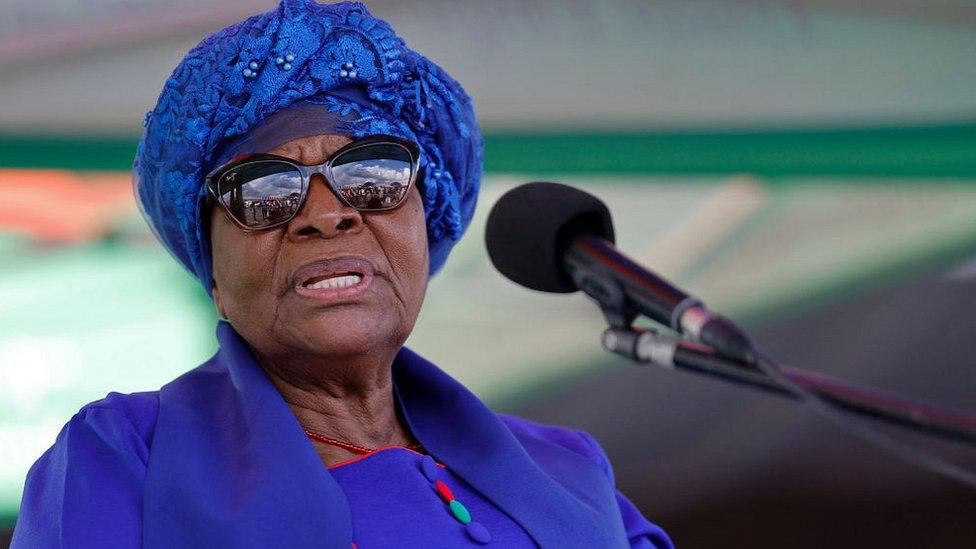
Netumbo Nandi-Ndaitwah, from the governing South West Africa People's Organisation (Swapo), was elected as the country's first female president in December 2024.
The electoral commission said Nandi-Ndaitwah won more than 57% of vote, with her closest rival Panduleni Itula, getting 26%. Itula said the electoral process was "deeply flawed" and his party challenged the results.
After the results were announced, Nandi-Ndaitwah said that "the Namibian nation has voted for peace and stability."
Swapo has been in power in the large but sparsely populated southern African country since independence in 1990.
Incumbent Nangolo Mbumba, who had taken over the presidency earlier in 2024 after the death of Hage Geingob, had said he had no intention of running for office.
Under the constitution, the president shares executive power with the cabinet and is limited to two five-year terms.
MEDIA

Namibia has spectacular natural attractions, such as the dunes at Sossusvlei in the Namib-Naukluft National Park
Namibia is one of the more media-friendly countries in Africa.
Broadcasters and the private press give coverage to the opposition, including views critical of the government.
TIMELINE
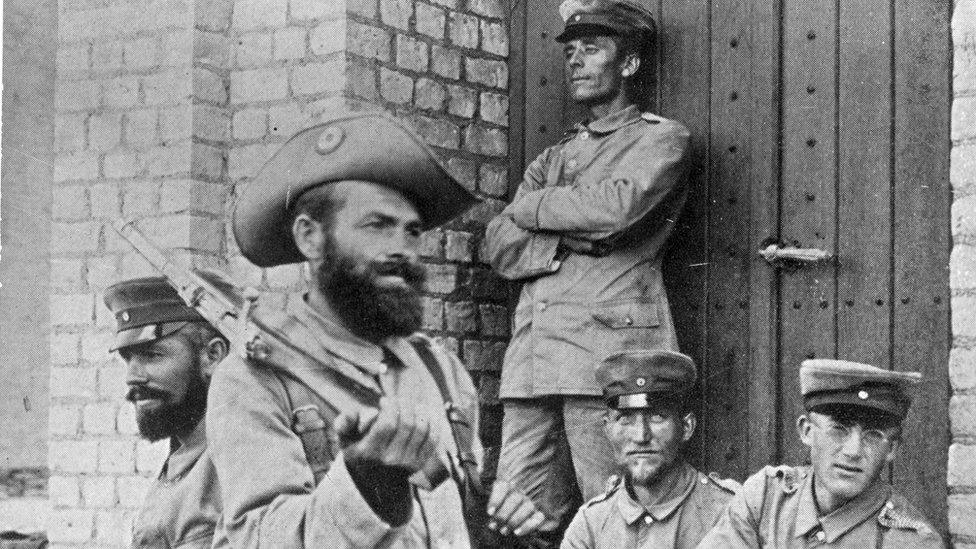
The German occupation forces almost wiped out the entire Herero population
Some key dates in Namibia's history:
Namibia has been inhabited since prehistoric times by the San, Damara, and Nama.
14th Century AD - Bantu people begin to arrive during the Bantu expansion from central Africa.
18th Century - Oorlam people from Cape Colony cross the Orange River and move into southern Namibia.
1878 - The British colony of the Cape of Good Hope annexes the port of Walvis Bay and the offshore Penguin Island, which become part of the new Union of South Africa in 1910.
1886-90 - Present international boundaries established by German treaties with Portugal and Britain. Germany annexes the territory as South West Africa.
1904-1907 - the Herero and Nama resist German colonialism. German forces brutally supress the uprising and systematically kill 10,000 Nama and some 65,000 Herero - in what is now acknowledged as genocide.
1915 - South Africa takes over territory during World War One.
1920 - League of Nations grants South Africa mandate to govern South West Africa (SWA).
1946 - South Africa refuses to place SWA under UN trusteeship.
1958 - Herman Toivo Ya Toivo and others create the opposition Ovamboland People's Congress, which becomes the South West Africa People's Organisation (Swapo) in 1960.
1961 - UN General Assembly demands South Africa terminate the mandate and sets SWA's independence as an objective..
1966 - South West Africa People's Organisation (Swapo) launches armed struggle against South African occupation.
1968 - South West Africa officially renamed Namibia by UN General Assembly.
1973 - UN General Assembly recognises Swapo as "sole legitimate representative" of Namibia's people.
1970s - Namibia became one of several flashpoints for Cold War proxy conflicts in southern Africa. The USSR and Cuba send military support to Swapo's armed wing, the People's Liberation Army of Namibia (PLAN).
1988 - Growing war weariness and the reduction of tensions between the superpowers compels South Africa, Angola and Cuba to accede to the Tripartite Accord. South Africa agrees to Namibian independence in exchange for removal of Cuban troops from Angola.
1990 - Namibia becomes independent, with Sam Nujoma as first president.
1994 - South African exclave of Walvis Bay turned over to Namibia.
1999 - Government quashes a secessionist attempt in the northeast Caprivi Strip by the rebel Caprivi Liberation Army.
2004 - Germany offers formal apology for its colonial-era mass-killings.
2005 - Namibia begins the expropriation of white-owned farms as part of a land-reform programme to resettle landless black Namibians.
2022 - Estimates suggest that two exploration wells in the offshore Orange Basin could hold two and three billion barrels of oil, respectively. The expected revenue could transform Namibia's economy.
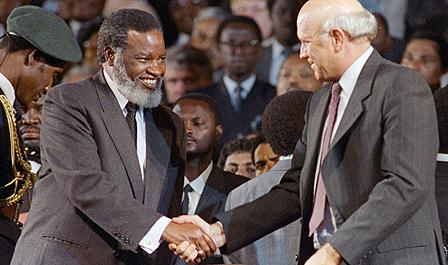
Independence celebrations: Namibia's president Sam Nujoma shakes hands with FW de Klerk of South Africa, which gave up rule over the country
- Published21 February 2023
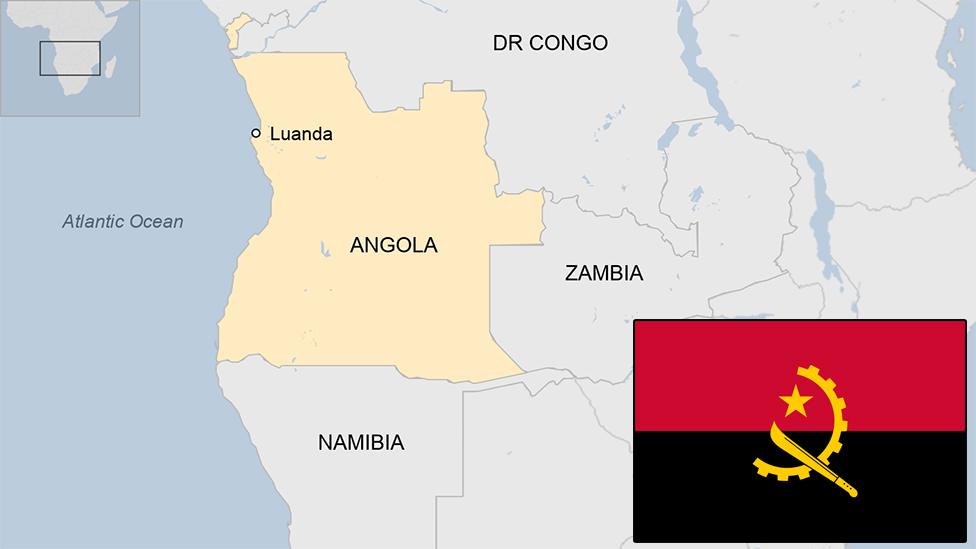
- Published24 March 2023
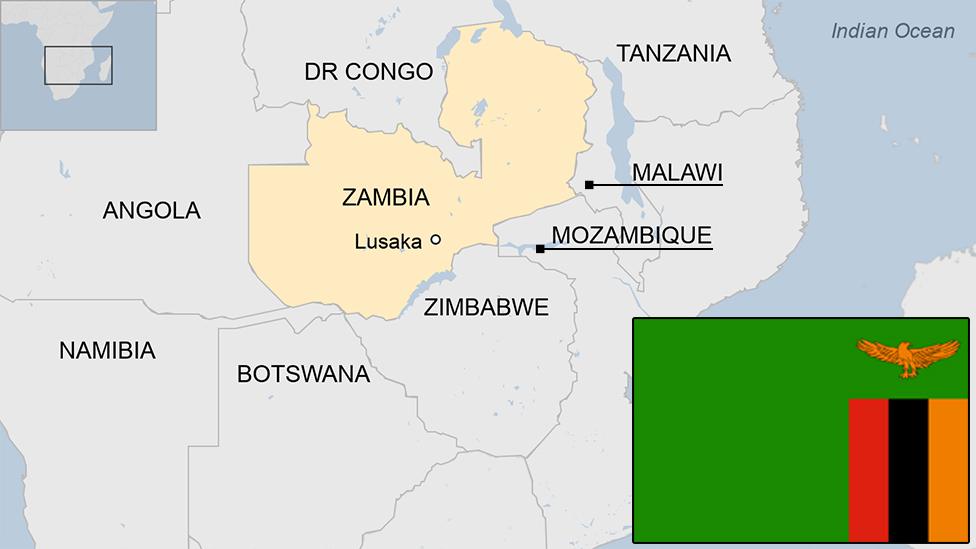
- Published30 August 2023
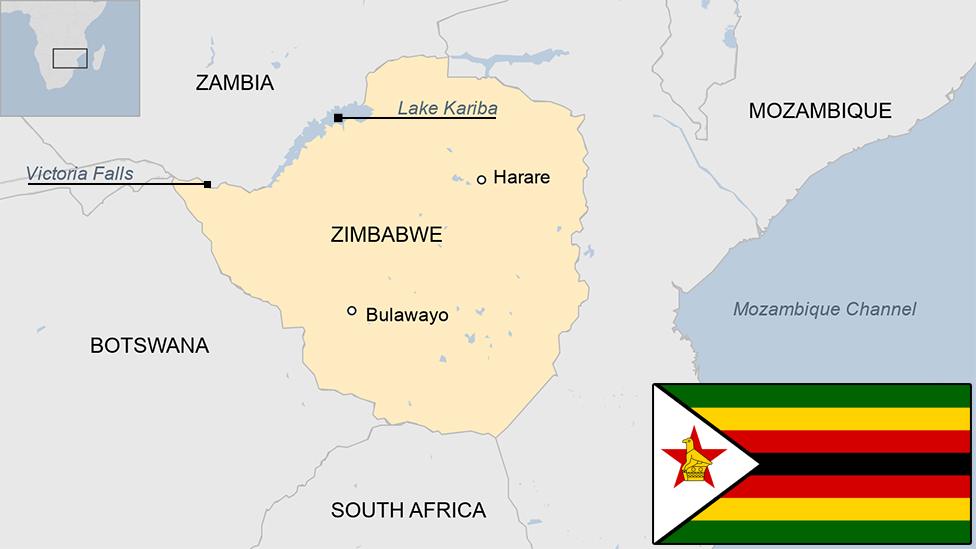
- Published11 November 2024
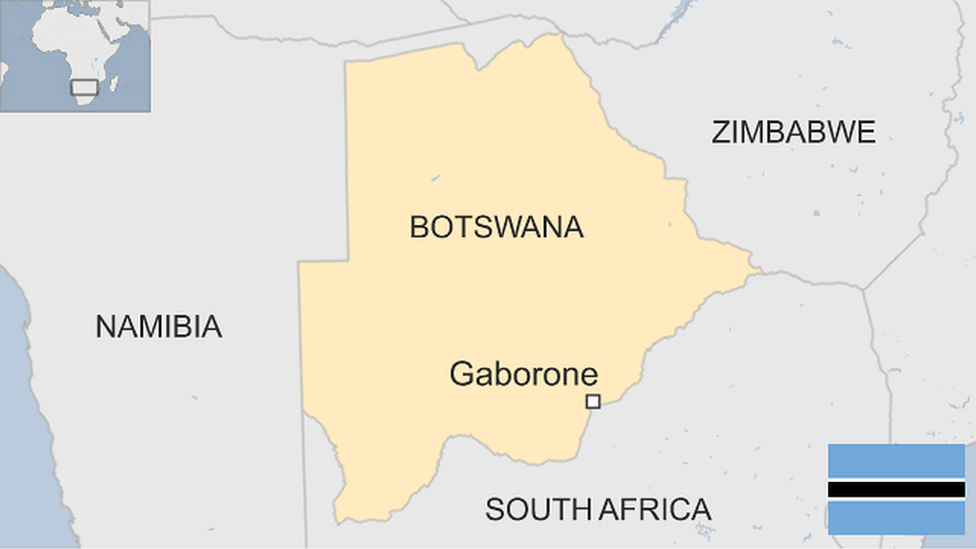
- Published9 July 2024
